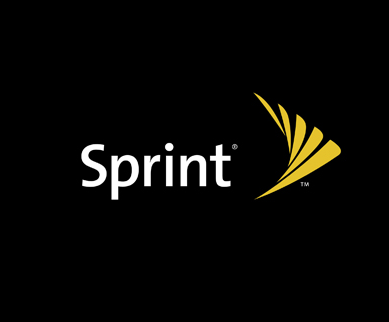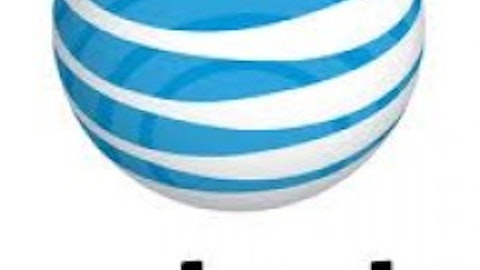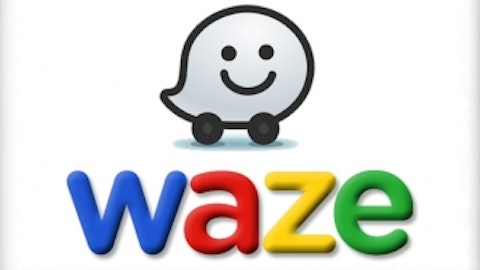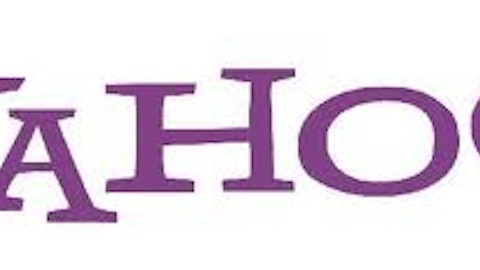The “SprintPhone” is here, and it is “Vital” you check it out. Sprint Nextel Corporation (NYSE:S) just announced that it is going to make its own smartphone and sell it for $100. ZTE, the low cost Chinese manufacturer, is going to make the device. The Sprint Vital will have a 5 inch HD screen, a 13 megapixel camera, will run Google Inc (NASDAQ:GOOG)‘s Android Jelly Bean OS, and will have a dual core 1.5 GHz processor with 1 GB of RAM and 8 GB of internal storage. Not bad for a phone with a $100 price tag.
Sprint Nextel Corporation (NYSE:S) has said it wants to make this phone to be more like Google Inc (NASDAQ:GOOG) intended and less like what third party manufacturers have made Android to be. They are going to intervene less in the overall feel of the OS but they will have some Sprint-based preloaded software on the device. Is this a good idea for Sprint or is it a half-baked attempt like Hewlett-Packard Company (NYSE:HPQ)‘s Palm?
Leverage
One of the biggest costs telecoms in the US have to deal with is the phone subsidies they pay to get customers to upgrade their device. The iPhone costs telecom companies $600-$700, but the end consumer will pay anywhere from nothing to $200 for the phone (with a two year contract). With Sprint Nextel Corporation (NYSE:S) offering its own phone it could give the company more leverage over smartphone manufacturers like HTC, Apple, and Samsung.
PC Magazine said, “the Sprint Vital smartphone gets you a big screen and a solid camera for a good price, but everything else is just average.” They gave the phone 3.5 out of 5 stars and said that it was a good phone but wasn’t that interesting other than it was big and had good specs.
Regardless, Sprint Nextel Corporation (NYSE:S) can still push this phone aggressively in its stores and use that leverage to potentially reduce the subsidies that they have to pay. They can also sell the phone at cost without the premium they pay to Samsung or Apple Inc. (NASDAQ:AAPL), the premium being the profit both those manufacturers make.
This will boost their margins and significantly help out their bottom line, huge news for Sprint Nextel Corporation (NYSE:S) because its operating margin (TTM) is 1.87%, which is way lower than the 16.14% average for the telecom industry. If Sprint can boost their margins to even half of the industry average it justifies its recent rally and explains why Softbank and DISH Network Corp (NASDAQ:DISH) want to buy Sprint.
Other telecoms
Verizon Communications Inc. (NYSE:VZ) and AT&T Inc. (NYSE:T) have long wanted to reduce the subsidies they pay for smartphones. When Verizon or AT&T have a good quarter, that usually means they sold more smartphones than expected. Smartphone customers bring in 90% more revenue than feature phone customers so telecoms have a huge incentive to get that Samsung S4 or iPhone into your hand.
But the caveat to that good quarter is that their profit margins take a huge hit as they shell out ~$400 for each phone they sell. If they branched out with their own phone good quarters could actually mean they made more money for their bottom line.
Google’s benefit
Google Inc (NASDAQ:GOOG) seems like the ideal OS for branching out, just look at the Sprint Nextel Corporation (NYSE:S) Vital or Amazon’s Kindle for proof of that. With Android, OEM’s (original equipment manufacturers) have a lot of control over what they do to the device and what the customer will be able to do with the software.
Even if Apple Inc. (NASDAQ:AAPL) or Samsung gets hurt by self branded phones Google Inc (NASDAQ:GOOG) will benefit. They offer the Android OS for free as long as the phone has close integration with Google Maps and Google search engine. Google reaps huge gains as they continue to dominate the rapidly growing locational services market. Nokia Corporation (ADR) (NYSE:NOK) and Google have moved the locational services market to an advertisement based service, which is Google Inc (NASDAQ:GOOG)’s bread and butter.
According to Pyramid Research (read the footnotes) the locational services market was $2.8 billion in 2010 and will hit $10.3 billion in 2015. This is why Google just offered $1.1 billion to buy Waze, another company that offers locational services. Google wants to capture as much of this market as it can but the purchase of Waze may raise antitrust concerns.






